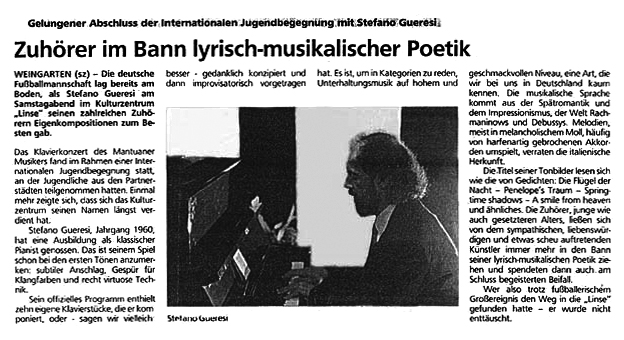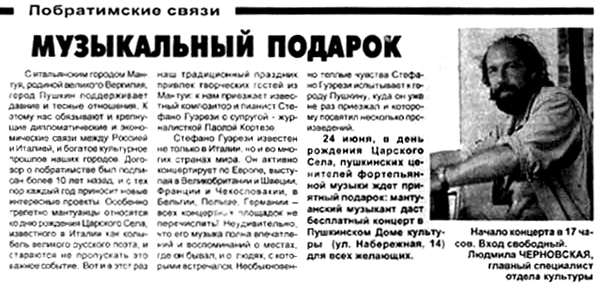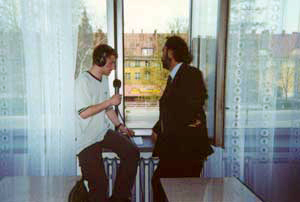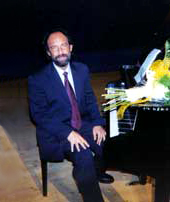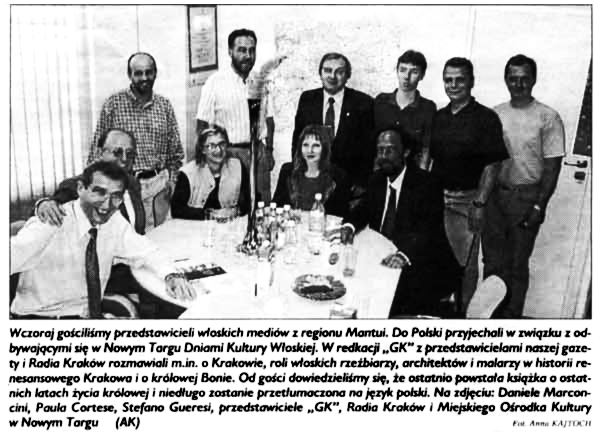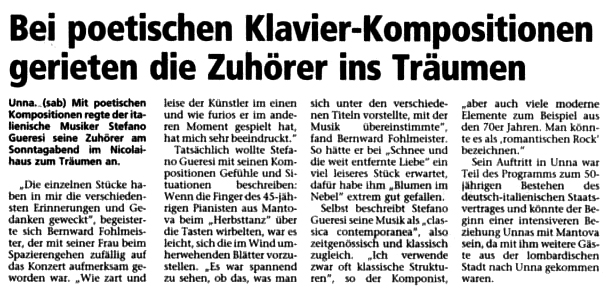"An evening of great music, which made us dream, evoking infinite horizons in the imagination of each and accompanied by deep sensations and emotions. This is what the concert “Parole e Silenzi” (“Words and Silences'') by the acclaimed Mantuan pianist and composer Stefano Gueresi, had to offer at the boardroom of Palazzo del Podestà in Castell'Arquato.
Through the execution of his own works, Gueresi immediately began to transmit serenity, anticipating the organizers’ noble intentions, proof of the great emotional strength of music as a universal language. Songs composed by a contemporary yet in countercurrent with the atonal and dissonant inclinations of many of his colleagues, written in a very pleasant tonal style, in which his own personal imagination and inventiveness, though present and original, are always at the melody’s service. And then here is the beautiful "Il sogno di Penelope" (“Penelope’s Dream”), the romantic "I racconti del lago" (“Tales of the Lake”) and the enchanted, almost Chopinian moments of "La neve e l’amore lontano" (“The Snow and the Faraway Love”). In the pages written by Gueresi there is no lack of virtuosity, as it lightly emerges in every piece (emblematic in this regard the "Danza d’autunno" (“Autumn Dance”) and the final encore), but always in a calm and gentle way, almost as if the master did not want to break the spell of his music. Finally, to the applause of the public, came a sparkling encore, yet another proof of Gueresi’s great value."
Mauro Bardelli ("La libertà" of Piacenza, 13/3/2006)



